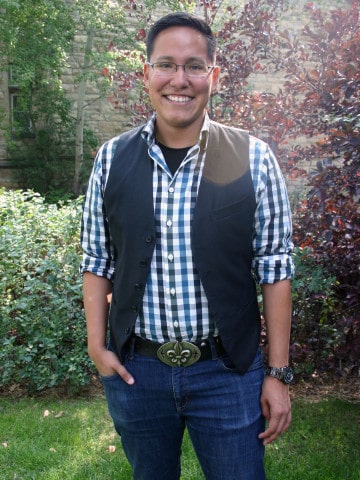On Mar. 14, University of Saskatchewan Students’ Union president Jack Saddleback gained national recognition for his numerous efforts and accomplishments in the university and provincial community, a win that marks him among a new generation of leaders and change-makers in Saskatchewan.
Since 2013, the Canadian Broadcasting Corporation has annually honoured exceptional Saskatchewan residents in the CBC Saskatchewan Future 40 Under 40 contest. Choosing from hundreds of names put forward by community members, an internal judging panel selects 40 winners under the age of 40 based on four criteria: professional contributions, outstanding service contributions to the community, effort and initiatives taken for better health and success in Saskatchewan and making a difference in the community.
Saddleback, among the winners announced on the first day of the contest, felt humbled to have his name included with so many incredible people. He believes that this contest not only recognizes talented and driven  individuals, but also supports community growth.
individuals, but also supports community growth.
“I think it is a good initiative that we recognize within our province for the hard work that [winners] do for the community and I honestly think that it brings us closer together … This is who we are as a province. We are very much a volunteer driven based group of people,” Saddleback said.
This year, contest winners were organized into categories, including arts, culture and entertainment, business and entrepreneurship and teaching and healthcare, among others. Saddleback is a winner in the category of community, social activism and volunteerism.
In his five years at the U of S, Saddleback, who is now completing his one-year term as USSU president, has also served two years as the Pride Centre co-ordinator and one year as the USSU vice-president student affairs. The contributions he has provided to the university over the years include advocacy for Aboriginal students and gender and sexually diverse students.
Saddleback is particularly proud of the work he accomplished at the Pride Centre, including the success of an initiative to promote and organize gender neutral sweat lodges and pipe ceremonies on campus, hosted in conjunction with the Aboriginal Students’ Centre.
“I am super proud of that aspect because that not only opened up a door for me to come back into my community and into my ceremony and my culture, that opened up a door for a number of individuals to come out and enjoy and partake in their own culture or learn a new culture in a safe, inclusive environment. And I remember the very first sweat that we had, the emotions that were there, the people that came. It resonated.”
As the Pride Centre co-ordinator, Saddleback lobbied for change on campus surrounding issues of harassment and discrimination. As a result of this effort, the U of S was the first of a group of 15 research institutions in Canada to include two-spirit identities in its discrimination and harassment policy.
“We now have it in policy, and we can confidently say that you are going to be respected and celebrated as who you are in all of your aspects here at the U of S,” he said.
Saddleback’s work in the last year as part of the USSU executive has focused on mental health, something he struggles with himself, and he remains adamant that open discussions of mental health are critical.
“I thought it was very important for me to speak up about not only my experiences, but also the need to create safe and non-stigmatized areas when it comes to mental health talk … There needs to be a lot of consultation that takes place with the mental health strategy. Not only should it be for students, it also needs to be for staff and faculty because our success also relies on their success, so we need support for the support.”
Saddleback is gratified to have his work recognized in the Future 40 contest, and though his term as USSU president will soon come to an end, he is determined to continue working for issues he believes in, both at the university and in Saskatchewan.
“I don’t really do this work for the pat on the back. What I do it for is seeing individuals being able to have a better life for themselves.”
—
Jessica Klaassen-Wright
Photo: Olivia Swerhone-Wick / Supplied
Leave a Reply